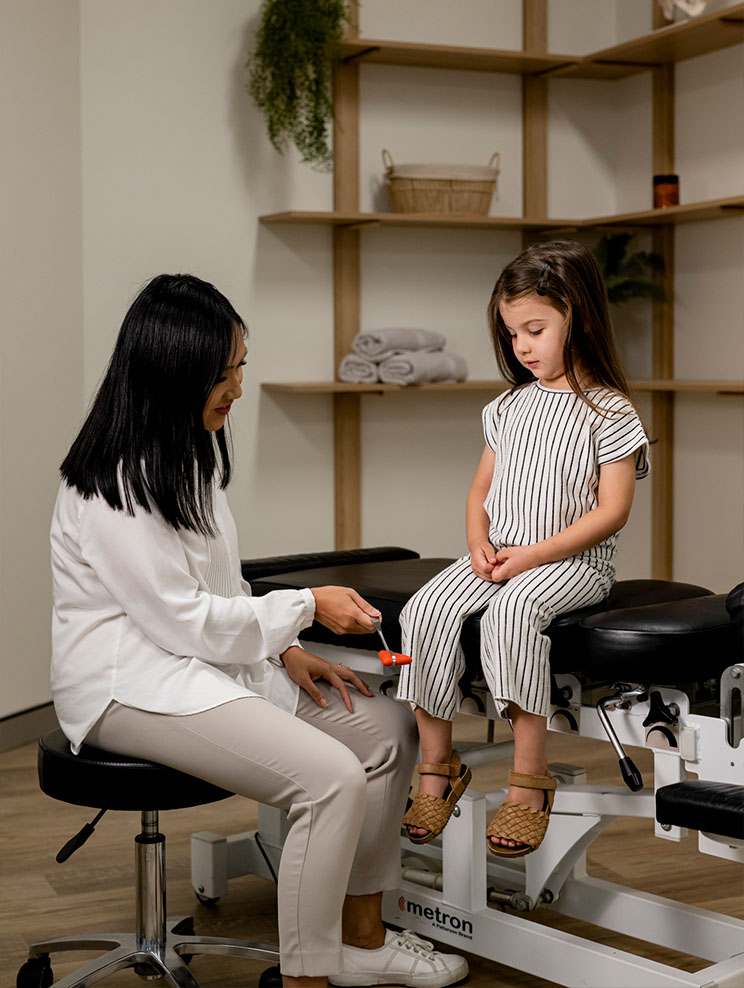
Primitive Reflexes
Children's Health
What are Primitive Reflexes?
Primitive reflexes are instinctive movements carried out by newborns and infants in their initial year of existence. These reflexes play a crucial role in helping babies learn and wire up their brains properly. It is typically anticipated that most primitive reflexes will fade away by the age of 4-6 months, and the majority of them should be fully integrated or absent by the time a baby reaches their first birthday, making way for new skills and discoveries.
Some examples of primitive reflexes that babies exhibit during their early stages of life include:
- Rooting reflex
- Palmar reflex
- Sucking reflex
- Babinski reflex
- Spinal gallant reflex
- Asymmetrical tonic neck reflex (ATNR)
- Moro reflex
- Tonic Labyrinthine reflex
These reflexes are natural responses that newborns and infants display, and they serve important functions in their development.
Understanding the significance of persistent primitive reflexes
In some cases, toddlers and children may continue to exhibit one or multiple primitive reflexes beyond their first birthday. Several factors can contribute to this, including a challenging birth, prenatal stress experienced by the mother or baby, insufficient tummy time, prolonged confinement in baby chairs or bouncers, incidents like falls or head trauma, and skipping important developmental milestones such as crawling.
The disappearance of primitive reflexes is significant because as they integrate, they form the foundation for more advanced movements and neural connections in the brain. For instance, the palmar reflex initially enables babies to grasp objects in a basic manner. However, as this reflex fades away, babies gradually develop enhanced dexterity and fine motor control, which are essential for activities like tying shoes, writing, or using silverware. Conversely, the persistence of primitive reflexes indicates a dysfunction in the processing of information by the central nervous system. Essentially, there is an issue with the neural pathways that impacts the overall functioning of the individual.


As time goes on, the persistence of primitive reflexes can potentially be associated with various issues, such as:
- Bedwetting
- Allergies
- Toe walking
- Sensory processing issues
- ADD/ADHA
- Poor handwriting
- Motion sickness
- Weak muscle tone
- Poor posture
- Clumsiness/poor balance
These conditions and behaviours may be linked to the presence of retained primitive reflexes, highlighting potential connections between these reflexes and the development of these challenges as a child grows.
Identifying signs of retained primitive reflexes in children
At our chiropractic office, we’ve had the opportunity to assist numerous children who exhibit retained primitive reflexes. When a child visits us for an evaluation, one of the initial steps is to assess them for the most commonly retained primitive reflexes. If any are found to be present, we take the time to educate parents about the implications of these reflexes persisting and delve deeper to determine if the child has displayed any of the aforementioned signs or symptoms. Our goal is to provide comprehensive care and support to help children overcome any challenges associated with retained primitive reflexes.
Chiropractic Care at Health Collab
Persistent primitive reflexes provide valuable insights into the functioning of the nervous system. Their presence indicates a disruption in the way information is processed by the nervous system. In the realm of chiropractic care, our objective is to eliminate any interference that hampers the communication between the nervous system and the rest of the body. Through targeted chiropractic adjustments, we have witnessed numerous instances where children with retained primitive reflexes were able to integrate these reflexes by the time they were reassessed in follow-up evaluations. This transformative outcome showcases the potential of chiropractic care in facilitating the natural integration process and optimising nervous system function.

Start your health journey with better understandings.
We are here to provide you with the most comprehensive care for your well-being, so book online or call today.


 Find Us
Find Us  (02) 8781 4288
(02) 8781 4288 

